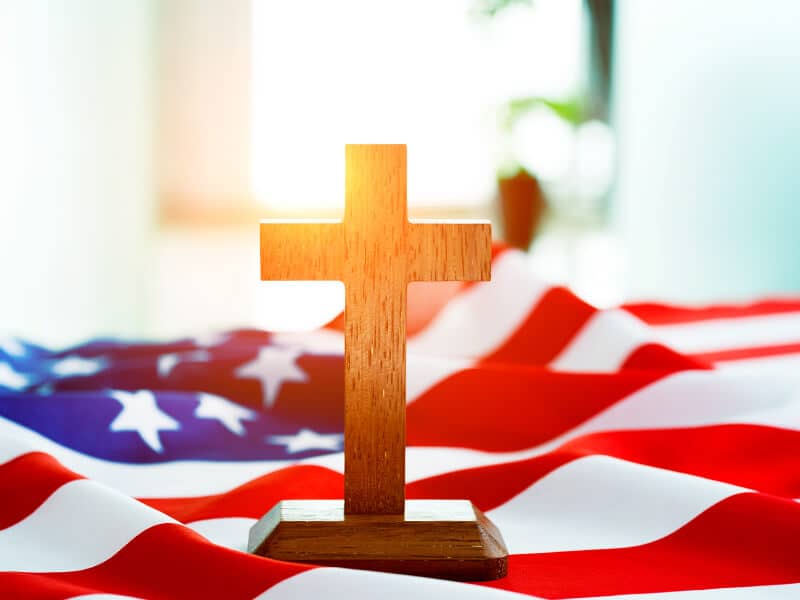Capturing this "passionate" audience would surely benefit President Bush's re-election. But translating it into votes will be a challenge. Unlike the movie, the campaign is about several subjects that must be marketed in a variety of ways. These messages and means of communication play out differently among Christians. A look back at the 2000 election provides a baseline for assessing this challenge in 2004.
"The Passion" has been especially popular among evangelical Protestants. Contrary to stereotypes, they are remarkably diverse. Using the broadest definition (based on affiliation), evangelicals make up roughly one-quarter of the electorate, about the size of Catholics and a bit larger than mainline Protestants. Evangelicals can be usefully divided into four sub-groups on religious grounds: the traditionalists, conservatives, centrists, and modernists.
The "traditionalists" hold to orthodox Protestant beliefs (nearly nine-of-ten believe the Bible is the literal Word of God) and practices (the same proportion report attending worship weekly or more often). More importantly, they are self-conscious defenders of their tradition, identifying as fundamentalists, Pentecostals, charismatics, and/or (neo)-evangelicals. Historically, these religious movements warred with each other, but such animosities have been replaced by a shared hostility to contemporary culture. Typically middle-aged, middle-class, and married with children, the traditionalists live mostly in the South and Midwest.
The traditionalists make up about one-third of evangelicals. Their political focus is on social issues, including fierce opposition to abortion and same-sex marriage. As a result, they are very conservative and Republican. But they have also been vocal critics of President Bush for inaction on their agenda. In 2000, the traditionalists turned out in large numbers (almost three-fifths reported voting) and strongly backed Bush (by better than four-fifths). Just as importantly, this group has provided the bulk of the grassroots activists of the "religious right." In 2004, Bush needs to keep the traditionalists engaged-but not alienate other voters.
What about the other two-thirds of the evangelical community? The "conservatives" also make up about one-third of evangelicals. They closely resemble the traditionalists in belief and practice, but without the militancy. And except for their concentration in the South, have a similar demography. They also hold conservative views on social issues and tend to be Republican. However, they have a broader issue agenda, including public education, social spending, and foreign policy. The personal values of presidential candidates appear to be especially important with this group.
In 2000, three-quarters of the conservatives voted for Bush, but their turnout was low (only about two-fifths reported voting). This fact reflects their disproportionate residence in the South (where the election wasn't close), the last-minute revelation of Bush's DUI conviction ("character counts"), but also a lack of church-based political contact (the lowest reported level of the four sub-groups). In 2004, Bush will need an extensive voter turnout effort for this group. Strong church-based mobilization by traditionalists at the grassroots may be crucial, but it will need to stress a broader agenda.
The remaining two-fifths of evangelicals are less orthodox and have been referred to as the "freestyle evangelicals." One part of this group, the "centrists" stand at the mid-point in the range of belief and practice, making up about one-quarter of the evangelical community. Compared to the traditionalists, they are less affluent, educated, and more likely to live in the Midwestern battleground states. While they tend to be conservative on social issues, the centrists stress economic performance and public disorder. Indeed, they are especially concerned with the loss of jobs and the decay of popular culture. They are on balance Republican, but with a strong Democratic contingent.
In 2000, the centrists voted for Bush and the modernists for Gore, each by a small margin, but their turnout was low (a bit over two-fifths reported voting). Given their issue priorities, Bush will have to struggle for the support of these groups. Here church-based contacts will be less effective, since neither group is strong worship attenders and both have a low opinion of the "religious right." So, they have to be reached via the news media and direct campaigning. Like Bill Clinton in 1992 and 1996, the Democrats could do very well with these voters in 2004--but would face a challenge in getting them to the polls.
Bush will want to attract other "passionate" Christians as well. One group is the more traditional mainline Protestants (about one-fifth of all mainliners). Another group is the more traditional Catholics (perhaps one-third of Catholics). In 2000, Bush handily carried the former and won a majority of the latter.
These more traditional voters are on balance conservative on social issues, especially same-sex marriage, but they often disagree with traditionalist evangelicals on other matters. For example, the mainliners are skeptical of the entanglement of religion with public affairs, and the Catholics count social welfare as a "traditional" value. Thus, these voters have an even broader range of issue concerns.
Conventional campaigning is the way to reach these more traditional voters. But the more moderate--and numerous-mainliners and Catholics are also in play, and they could be lost by a too-aggressive promotion of social issues in the campaign. Here the high turnout of mainline Protestants and Catholics (better than three-fifths) is a double-edged sword: Bush need not worry as much about getting these voters to the polls, but many could go straight into the Democratic column. In 2004, it will take careful courting to maximize support from white Christians outside of the evangelical tradition.
Many black and Latino Christians have also seen "The Passion." Some GOP strategists hope that their conservative views on same-sex marriages can be used to woo them away from the Democrats. This prospect appears unlikely because these voters have other issue priorities, such as civil rights and immigration. It may be possible for Bush to modestly improve his showing in 2004, but probably not on the basis of religion.
Hence translating Mel Gibson's large Christian audience into votes will be a challenge, even for the genius of Karl Rove. The passion of Christ may unite diverse people, but the power of Caesar divides them.

